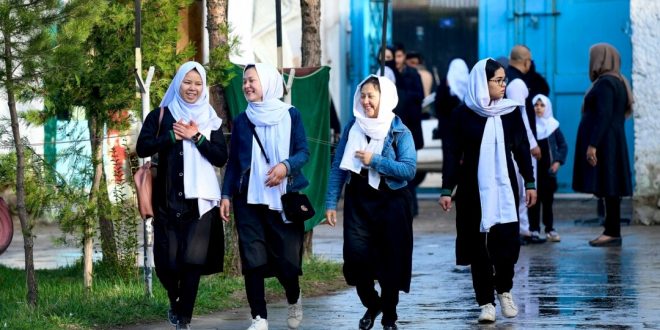AT
Kabul: The commencement of the school year in Afghanistan has once again brought to light the persistent issue of gender disparity in education, with girls being denied access to classes beyond the sixth grade for the third consecutive year.
This move, orchestrated by the Taliban, has not only halted the educational journey of countless young girls but has also drawn widespread condemnation from global humanitarian organizations.
The UN Children’s Agency has reported that over 1 million girls have been adversely affected by this discriminatory ban imposed by the Taliban.
This denial of education is not merely a setback for individual girls but also constitutes a grave violation of their fundamental rights. Furthermore, it perpetuates a cycle of inequality and impedes the socio-economic progress of the nation as a whole.
While much attention has rightly been directed towards the plight of girls under the Taliban’s educational policies, it is imperative to recognize the broader impact on boys’ education as well. Human Rights Watch has documented instances of “abusive” educational practices, including regressive curriculum changes and increased corporal punishment, which have adversely affected the educational landscape for both genders. The departure of qualified teachers, including women, further exaggerates the challenges faced by Afghan youth in accessing quality education.
 Afghanistan Times
Afghanistan Times




